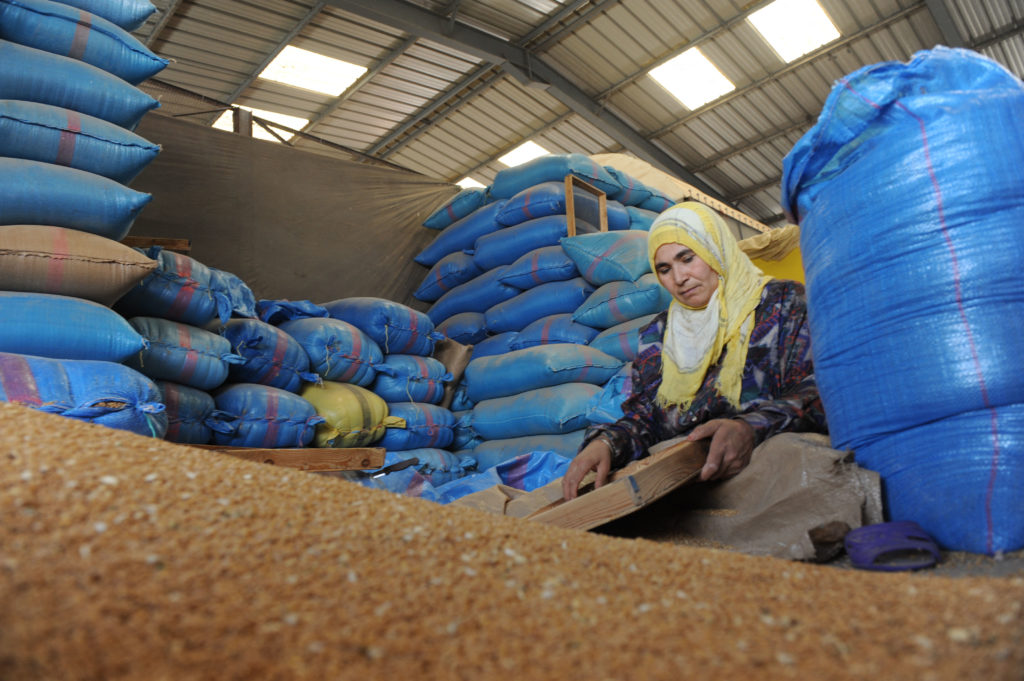São Paulo – Brazilian state-run agricultural research agency Embrapa is talking with Morocco’s National Institute for Agricultural Research (INRA) to develop a partnership. The heads of both agencies had two meetings earlier this year to learn in which areas there could be more synergy for the agreement. The topics under negotiation include exchange of genetic material of cultures such as wheat, soil and fertilizer management, and agricultural zoning. Pictured, Moroccan woman works sifting the wheat from the chaff.
The next meeting, which will take place between researchers from both institutions, is scheduled to late September. “We’re talking and drafting what we could do together,” Embrapa R&D advisor Alexandre do Amaral said in a telephone interview with ANBA.
The agreement will delve into three areas of cooperation between Brazil and Morocco. The first one regards soil and fertilizer management. “Brazil consumes a good deal of fertilizers, and so does Morocco, but they produce a lot of phosphorus. It’s a major nutrient used in agriculture, so our dependence on them is very heavy. We want to understand how they deal with fertilizers and other nutrients there,” said the advisor.
Another topic is the exchange of genetic material. “Brazil is becoming a world reference in tropical wheat, which is traditionally grown in cold regions. Brazil is one of the three top wheat importers, but it could be a major exporter. Embrapa has developed a series of technologies with wheat. And Morocco also produces it but in colder regions. The idea is exchanging materials to see which one could adapt better in Brazil and in Morocco,” he explained.
And finally, the work with Embrapa encompasses the Climatic Risk Agricultural Zoning (ZARC). The project developed by Embrapa divides the Brazilian regions and points out which ideal areas and periods for growing each culture. “By using the information of the zones, you know where and when to plant certain cultures . The banks now use this public policy to provide credit for the Brazilian farmers. And Morocco is a country with very high diversity, too, so they’re interested in having a program like this,” he said.
Here’s more on Morocco:
- Mercosur-Arabs: Brazil wants to resume talks on agreements
- SENAI could share expertise in e-learning with Morocco
- Accreditation eases olive oil and wine imports from Morocco
INRA’s operations in Morocco are similar to Embrapa, which is affiliated to Brazil’s Minister of Agriculture, Livestock and Supply. “INRA is very similar to Embrapa with regards to structure and mission. This makes the talks between the institutions so much easier. That’s the idea, as both institutions have similar missions and are in countries that have agriculture as a significant part of their GDP and domestic economy – this makes cooperation easier,” Amaral explained.
The advisor pointed out that the institutions have signed a memorandum back in 2011, but the project was not continued. “We want that this time the agreement creates technologies that are interesting to Brazil and Morocco,” he finished.
Translated by Guilherme Miranda




